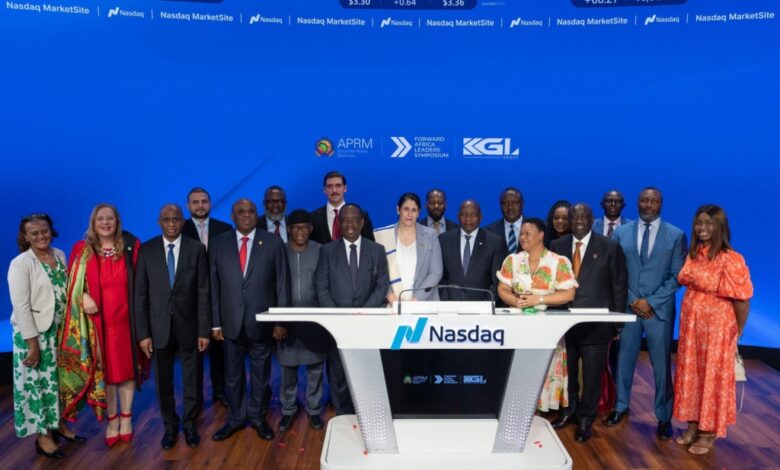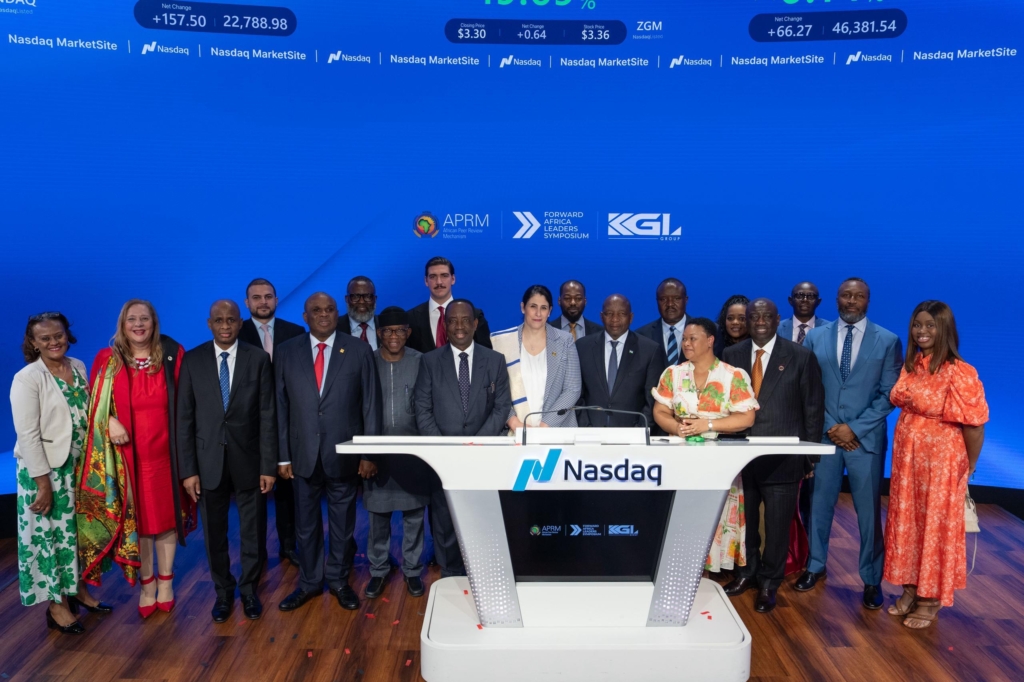Africa must not be left behind in digital evolution – MTN Group CEO


President and Group Chief Executive Officer of South African telecommunications giant MTN, Ralph Mupita, has added his voice to calls for greater digital inclusion across Africa.
Speaking at this year’s Forward Africa Leaders Symposium (FALS), held on the margins of the 80th Session of the United Nations General Assembly in New York, Mupita stressed the urgency for African governments to take decisive action to avoid being left behind in the global technological race.
Held under the theme “Advancing Africa’s Digital Transformation: Inspiring Action, Accelerating Growth, Accelerating Impact,” the event took place at the Nasdaq MarketSite, the commercial marketing hub of the Nasdaq Stock Exchange.
It brought together African leaders, entrepreneurs, and key stakeholders to deliberate on how digital technologies can spur economic growth and improve public services, with particular emphasis on data governance and public–private partnerships.
For Ralph Mupita, Africa must seize the moment. “Governments of Africa have to seize the moment and understand that we are in a particular echelon of technological evolution. If we are not involved, we will be left behind,” he cautioned. He described this move as a prerequisite for unlocking the continent’s potential for prosperity and sustainable growth.
Reflecting on MTN’s three-decade journey, Mr Mupita noted that the company has consistently found unique solutions tailored to Africa’s specific challenges. “Throughout the last 30 years, we’ve had to find very specific solutions to address challenges not encountered elsewhere. When we started, our business plan targeted a million South Africans having wireless connectivity. Today, we have connected 300 million people,” he said.
He added that MTN pioneered several innovations, including the introduction of prepaid services. “You pay what you can — a bundle for a few hours or for a day. We brought connectivity within reach of millions,” he explained.
AU’s digital policy milestones
The African Union (AU) has in recent years made significant strides towards a more harmonised digital ecosystem. In 2022, the AU adopted the Data Policy Framework, providing a unified governance structure. The following year saw the Malabo Convention come into force, establishing cybersecurity safeguards.
In 2024, the AU launched the Interoperability Framework for Digital ID, enabling citizens to access services more easily and supporting the full realisation of the African Continental Free Trade Area (AfCFTA). That same year, the AU adopted the Continental AI Strategy and the African Digital Compact, followed most recently by the inclusion of e-Governance as the sixth thematic pillar of the African Peer Review Mechanism.
Deputy Chairperson of the African Union Commission, Selma Malika Haddadi, who was present at the forum, highlighted that these policy milestones “create a connected and cohesive foundational architecture that can provide the predictability and standardisation our economies need to scale seamlessly across borders.”
She stressed that Africa’s digital revolution requires strengthened partnerships on terms that serve the continent’s interests. “Private sector engagement with this architecture is crucial. Their insights help ensure our frameworks respond to real market needs while maintaining the regulatory harmony essential for cross-border operations,” she added.
Mr. Mupita aligned with the AU’s call for collaborative efforts between governments, civil society, and businesses. “Through a partnership approach, working together, we can ensure that we as Africans are at the table shaping the future and the destinies of Africa of 2063, and beyond,” he said.
On the subject of Artificial Intelligence (AI), Mupita warned that Africa risks becoming “a digital underclass” if the continent fails to develop its own solutions to its unique challenges.
Bridging the digital divide
The digital divide remains stark: only 25% of Africa’s population is online, compared to 80% in the United States and 77% in Europe.
Participants at the symposium agreed that tackling this gap requires eliminating barriers such as limited access to electricity and affordable devices, which are essential to unlocking Africa’s digital potential.
Founder and Executive Director of the Forward Africa Leaders Symposium, Hannah Awuku, in her opening remarks, stressed that Forward Africa is “more than a symposium; it is a movement dedicated to advancing Africa’s digital ecosystem through strategic partnerships, bold investments, and inclusive innovation.”
“Our convening could not be more timely. Africa’s digital economy is surging with unprecedented momentum, projected to contribute over 5% to GDP by the end of 2025. With more than 60% of its population under the age of 25 and increasing internet penetration, the continent is poised to leapfrog traditional development challenges through innovations in mobile money, agritech, and healthtech,” she added.
The 2nd Forward Africa Leaders Symposium was organised in partnership with the African Peer Review Mechanism and supported by the KGL Foundation, GSMA, ABAN, Africa Business Council, Convene Africa, African Population and Health Research Centre, and Bi.
DISCLAIMER: The Views, Comments, Opinions, Contributions and Statements made by Readers and Contributors on this platform do not necessarily represent the views or policy of Multimedia Group Limited.
DISCLAIMER: The Views, Comments, Opinions, Contributions and Statements made by Readers and Contributors on this platform do not necessarily represent the views or policy of Multimedia Group Limited.
Source link





